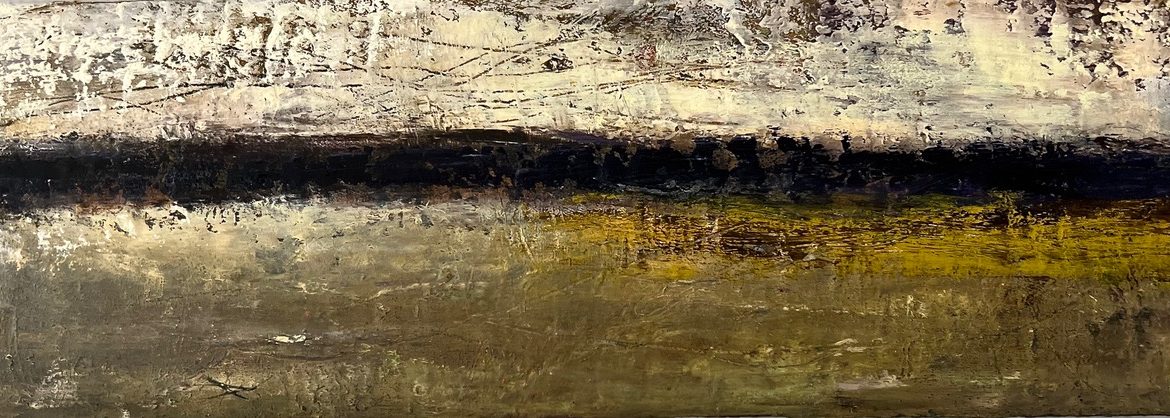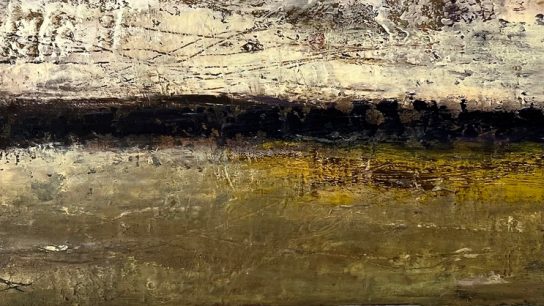In 2020—Seeing Clearly
by
Humanizing Acts is a series of essays and artworks that examines the impact of COVID-19 on the U.S.-Mexico borderlands. Each contributor writes about the ethical quandaries of conducting research at the border, living amidst the vulnerability and violence of pandemic times, and navigating complex interpersonal relationships and responsibilities. The scholars and artists share compassionate stories of people, including friends, loved ones, and neighbors alike, ultimately asking: How can academic research be a humanizing act?

In 2020–Seeing Clearly
By Sue Cronmiller
At the start, we were optimistic, feeling lucky—
2020 would be the year we would see
everything more clearly.
What we would see would be
we are deer
in our own headlights.
In 2020, we would see who is most
essential become the most expendable
and just how unessential most of us truly are.
Do you remember? The long days of nowhere to go?
Knowing it could happen anywhere, but not knowing how,
in the supermarket, in the classroom, at the post office, we were
cautious, lost, losing others, losing trust.
Many of us perished.
We walked in protest.
School kids came of age
behind avatars on Zoom.
We watched neighbors in Italy sing collectively
for the living and the dead holding small
candles up on their snowy balconies.
At first, it looked like nature was returning.
Some of us noticed, perhaps for the first time,
the meadow lark and the hermit thrush—
how they sing with such clarity and purpose
and took the time to download a bird app
and search to identify them on the internet.
Then the world started burning.
Hurricanes blew with a new fury.
Our days took shape from
the coming of the boxes from Amazon–
boxes arriving in shiny blue Sprinter vans
squeezing over speed bumps.
Their doors push open, push closed,
cheerfully beeping as they turn and go.
Clearly, we are not who we think we are.
In 2020: Viendo Claramente
Translated by Charles Underwood
Al principio, fuimos optimistas,
nos sentimos afortunados
Dos mil veinte sería el año que
veríamos todo más claro.
Como sucedió, lo que veríamos
sería que éramos venados
en nuestros propios faros.
En dos mil veinte, veríamos
quienes son más esenciales
convertirse en los más reemplazables
y que innecesarios éramos
la mayoría de nosotros.
¿Te acuerdas? ¿Los largos días sin ningún lugar adonde ir?
Sabiendo que podría pasar en cualquier lugar, pero sin saber cómo,
en el supermercado, en la clase, en el correo,
fuimos cuidadosos, perdidos, perdiendo a otros, perdiendo la confianza.
Muchos de nosotros perecieron.
Nosotros caminamos en protesta.
Los niños de la escuela
llegaron a la mayoría de edad
detrás de avatares en zoom.
Vimos a vecinos en Italia cantar colectivamente
para los vivos y los muertos sosteniendo
pequeños velas en sus balcones nevados.
Al principio, parecía que la naturaleza estaba regresando.
algunos de nosotros notamos, quizás por la primera vez,
la alondra del prado y el zorzal ermitaño—
cómo cantan con tanta claridad y propósito
y nos tomamos el tiempo para descargar una aplicación
y buscar para identificarlos en el internet.
Entonces el mundo comenzó a quemarse.
Mientras los huracanes soplaron una nueva furia,
Nuestros días tomaron forma a partir de
la llegada de las cajas de Amazon—
cajas que llegan en camionetas Sprinter de azul brillante
yendo despacio sobre los reductores de velocidad.
Sus puertas se abren, se cierran,
pitando alegremente mientras giran y se van.
Claramente, no somos quienes
creemos que somos.
The banner image for this piece is Morning on the River Moy by Sue Cronmiller. Oil and cold wax on cradled wood panel, 24” x 10” x 2”. Image courtesy of the artist.
This essay is part of the series Humanizing Acts: Resisting the Historical Erasures of the COVID-19 Pandemic across the U.S.-Mexico Borderlands, funded by UCHRI’s Recasting the Humanities: Foundry Guest Editorship grant. Listen to the collaborative podcast, in which series contributors discuss the gifts of resisting the historical erasure of the COVID-19 pandemic with community and research.
This publication was partially funded by the Andrew W. Mellon Foundation.




